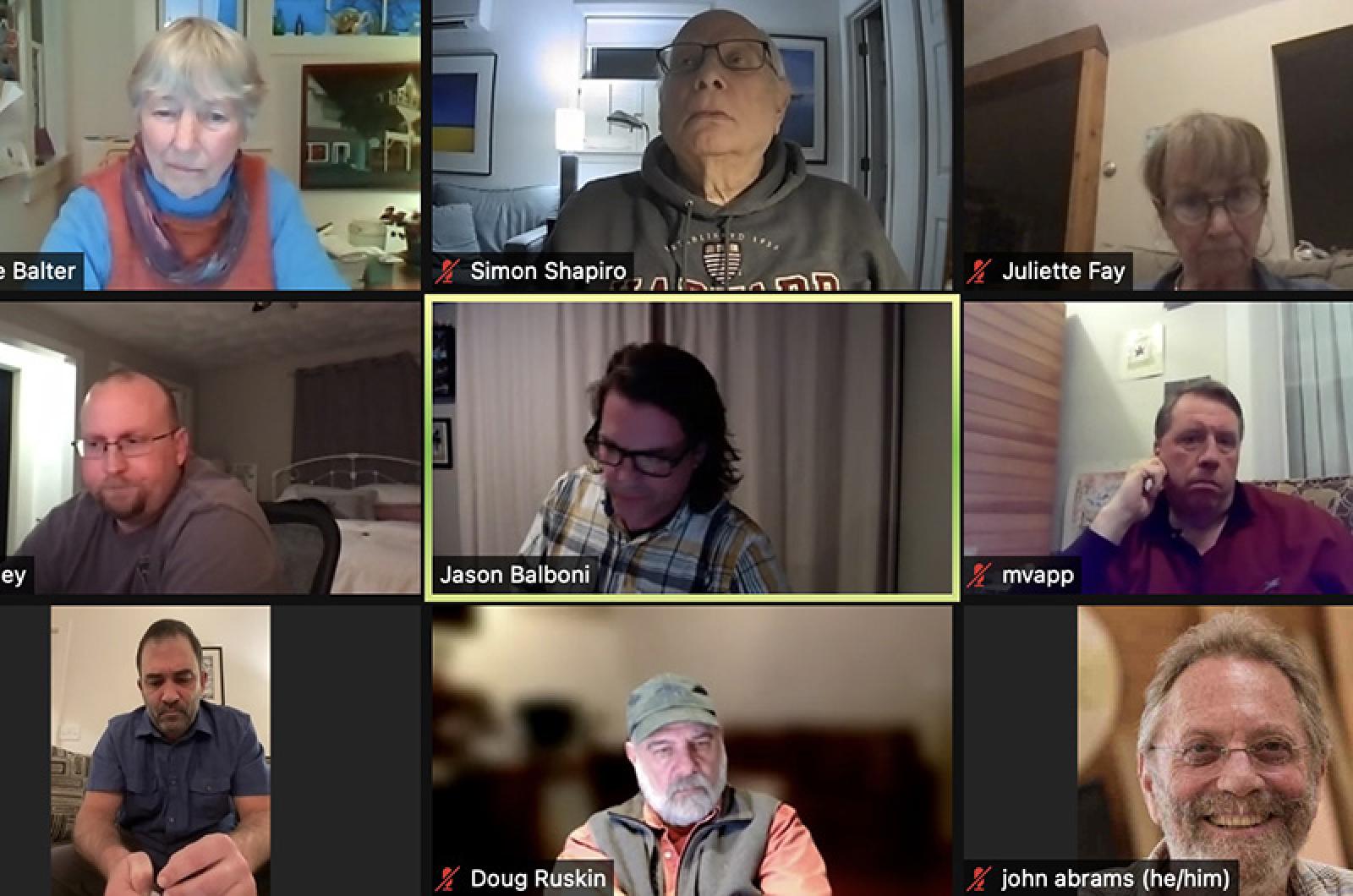As the coalition to create a Martha’s Vineyard housing bank whittles away at a draft town meeting warrant article that would set the bank into motion, questions and criticism from public officials keep flowing.
On Tuesday, that criticism came from the Oak Bluffs select board, when the coalition gave an amended presentation explaining the terms of the housing bank, modeled after the Martha’s Vineyard Land Bank. The coalition is working to adapt the proposed article, which it intends to have present at the town meetings of all six Island towns, based on feedback from the towns’ select boards.
So far, Chilmark, Aquinnah and Tisbury have each approved the article for town meeting, but Oak Bluffs, Edgartown and West Tisbury have all called for further changes to the article, often citing a lack of detail in some areas.
Oak Bluffs again deferred a decision on the article Tuesday, as the deadline for submission to town meeting grows closer.
A main sticking point of discussion was the ability for a participating town to withdraw from the housing bank, and the consequences of such an action.
As proposed, the housing bank would allow any participating town to withdraw from the housing bank at any time. But members of the housing bank coalition clarified that the proposed two per cent tax on home sales in participating towns would still apply until that town’s share of any housing bank debt existing at the time of withdrawal is satisfied.
“It’s almost as if the statement that you can drop out at any time is illusory,” select board member Gail Barmakian said.
Board member Brian Packish agreed.
“You’re still opted in, you’re just not on the hook for any new debt,” he said.
But housing bank coalition member John Abrams said debt accrued by the housing bank to create affordable housing “shouldn’t be the straw that breaks the camel’s back.” He added that revenue from the tax should cover a significant chunk of the cost of creating housing.
“The revenue will be so strong,” Mr. Abrams said.
He noted that each town would also have an advisory board that would have to approve any new debt for housing projects, acting as a slow-down mechanism if the towns feel too much money has been bonded for projects.
Select board members cited a number of other issues with the housing bank. Member Ryan Ruley worried that the housing bank may collect more yearly revenue than it will be able to spend. With current sales numbers, he said the bank would collect over $10 million a year, and speculated that by the time the bank reaches its built-in 30-year dissolution, it could have taken in well over $300 million.
But Mr. Abrams said a focus on projects such as renovations to existing buildings to create new housing would help spend the revenue.
Select board members also asked the housing bank coalition to come up with a solid dollar amount land bank commissioners would receive as a stipend. And they expressed concern that the housing bank would create a secondary, artificial market: One for those making up to 240 per cent of the area median income who would qualify for housing bank projects, and a more laissez-faire market for those making more.
Board member Gail Barmakian took issue with the idea that housing bank properties would be taken off the free market in perpetuity.
Coalition members argued that two housing markets already exist on the island, and the housing bank would simply expand the ability for those making more than 140 per cent of the area median income to afford a home.
“What that does is it broadens hugely the people that will qualify,” Mr. Abrams said.
Despite the questions and concerns, the select board moved in a separate discussion Tuesday to draft a letter to the state offering support for two pieces of legislation that create a legal pathway for transfer fees such as the one proposed by the housing bank and other entities like it.
“We would be giving general support for the theory,” Ms. Barmakian said.
Mr. Packish expressed some concern over the letter, saying he didn’t have enough feedback from constituents to support it. But after the rest of the board voted to draft the letter, Mr. Packish followed suit.
“Based on the will of the board, Packish aye,” he said when the measure came to a vote.
The draft housing bank article is set for more discussion at the select board’s Jan. 11 meeting, days before the town deadline for filing the article.







Comments (16)
Comments
Comment policy »